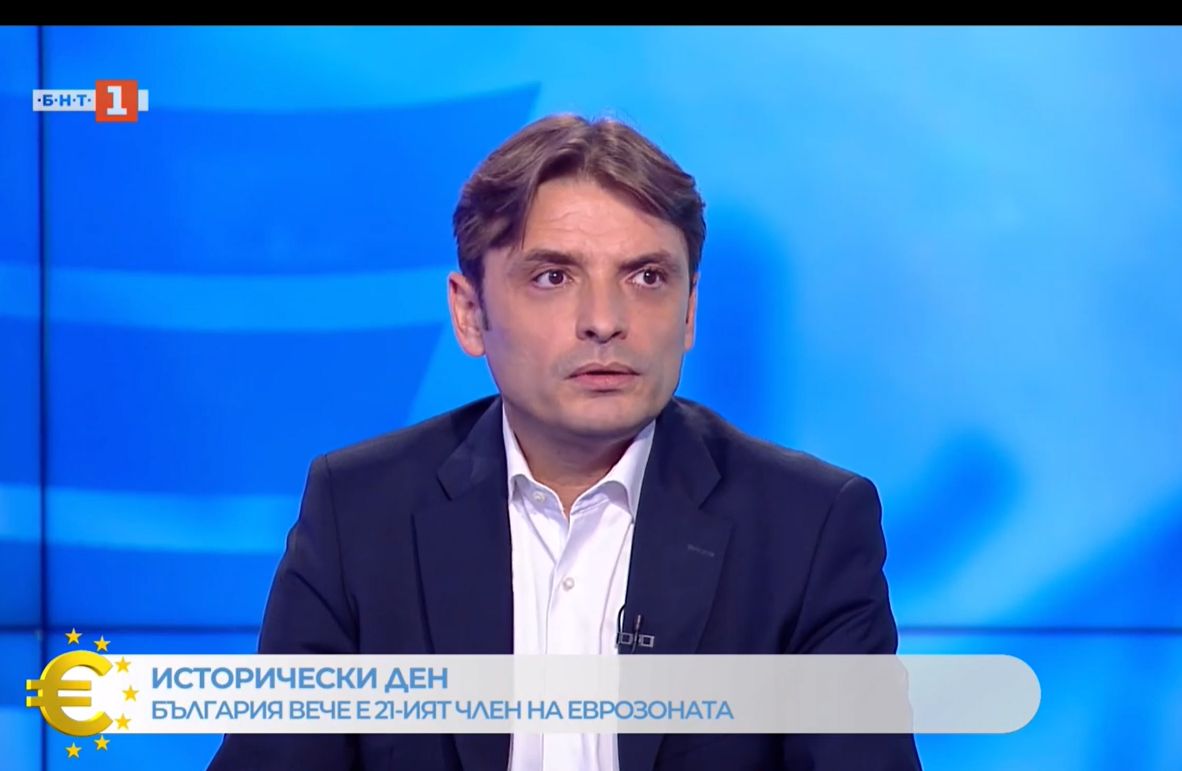Today is a great success for Bulgaria, and I want to congratulate all the people who, for years, have been involved—both in the legislative and executive branches, as well as in various formats, including the format of the Economic and Social Council of the Republic of Bulgaria. This was stated in thе Bulgarian natioanl TV (BNT) studio by Stanislav Popdonchev, Deputy Chairman of the Bulgarian Industrial Association (BIA).
He emphasized that the Bulgarian Industrial Association and all nationally representative employer organizations have supported Bulgaria’s membership in the Eurozone for years, and he highlighted that Bulgaria is unique in having such support from both national trade unions as well.
"The businesses that will benefit from the effects of the Eurozone more quickly are tourism and the transport sector, which have already experienced relief from Schengen membership. There will likely be benefits in the financial sector too, but overall, perhaps all export-oriented businesses and industries that primarily work with EU member states—and especially those exporting mainly to the Eurozone—will benefit across the board."
"During yesterday's meeting of the Public Council to the Commission on Protection of Competition (CPC), measures were discussed regarding combating speculation and other non-market practices. Sectoral analyses and a number of inspections are planned, but what’s important for Bulgarian business is that these intensified measures to fight unjustified price increases should not come at the expense of administrative pressure on compliant businesses. It is important that, during the information-gathering process, the problems are identified regionally or sectorally and that inspections are focused precisely there—instead of, to put it bluntly, harassing everyone," said Popdonchev.
Among the main challenges for businesses during the Eurozone accession process, the BIA Deputy Chairman highlighted the dual pricing of goods, the provision of euro banknotes, and the reconfiguration of cash registers.
"Currently, certain guarantee deposits are required, which small businesses must make when ordering euro banknotes, and I hope that in our discussions, we will reach an agreement for these deposits to be eliminated or minimized so they don’t block the working capital of small retailers," Popdonchev added.
"With regard to employment contracts, workers and employees should be reassured that there is no need to re-sign contracts, including through annexes, and wages will be rounded in favor of the employees," Stanislav Popdonchev explained.






